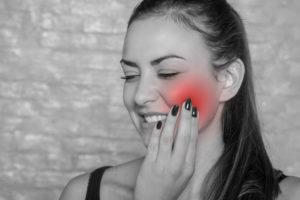TMJ and TMD: What’s The Difference?
- Posted on: Mar 30 2018

What is the Temporomandibular Joint?
Located at the point where the lower and upper jaw connects to the bone in front of your ear, the temporomandibular joint helps you move your lower jaw horizontally and vertically. The TMJ is controlled by a collection of muscles and ligaments.
What is Temporomandibular Disorder?
Temporomandibular disorder is often mislabeled as TMJ, and the condition describes any abnormality in the joint, muscles and connective tissue. TMD may be caused by:
- Teeth grinding that places excessive pressure on the joint
- Tightening your jaw in response to stress
- Degenerative conditions, such as arthritis
- Slipping of the disc in the joint capsule
Does TMD Require Treatment?
Without treatment, the symptoms of your TMD may worsen. Some of the most common signs of TMD are headaches, pin in the upper shoulder area, neck pain, toothaches, earaches, chronic ringing in the ears and dizziness. If your TMD is caused by grinding or clenching, you risk wearing down your teeth which may cause permanent damage or even tooth loss.
How Can I Prevent TMD?
If you tighten the muscles of your jaw, take frequent breaks during the day to focus on relaxing the muscles and applying gentle massage. For patients who grind and clench their teeth, we may recommend a mouth guard to be used while you sleep. Avoid hard foods that place pressure on the TMJ, such as popcorn kernels, ice, and hard candies. Your posture plays a role in TMD, so make sure that you follow recommendations for an ergonomically correct seated position when you sit for prolonged periods.
Learn More About TMJ and TMD. Contact Deeter Dental.
To learn more about TMJ, TMD, orthodontics, sedation dentistry and our other services, contact Deeter Dental today to schedule an appointment. You can also contact our office in Bismarck, North Dakota, directly at (701) 222-1800 and our office in Garrison, North Dakota, at (701) 463-2884.
Posted in: TMJ/Neuromuscular Dentistry

